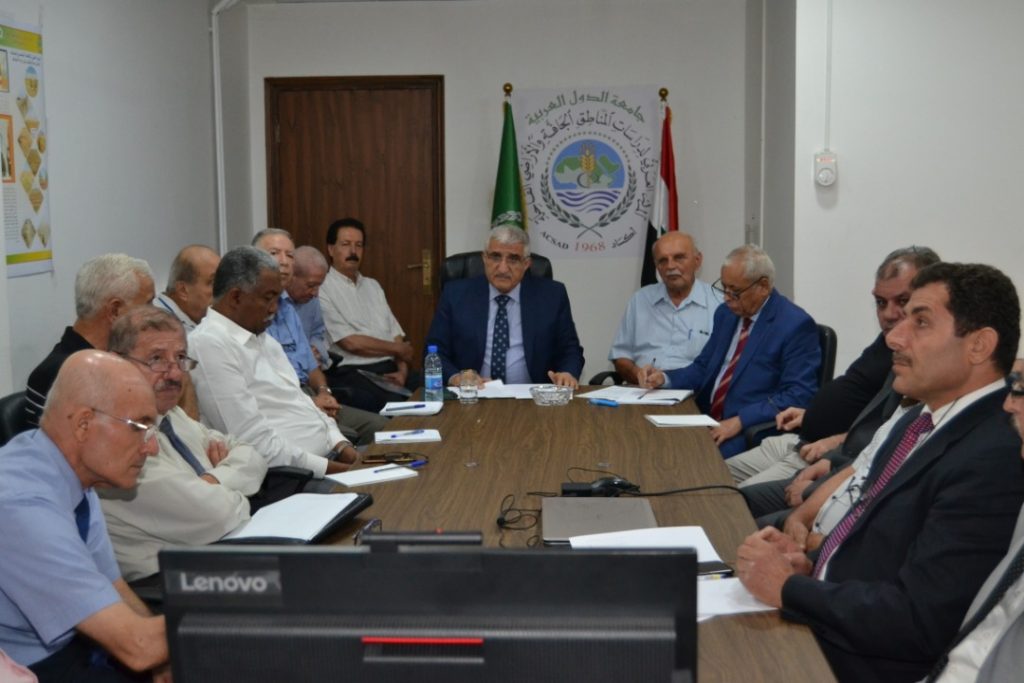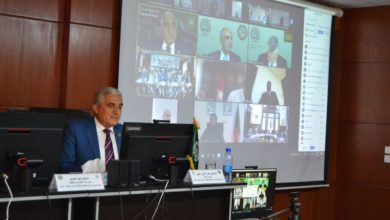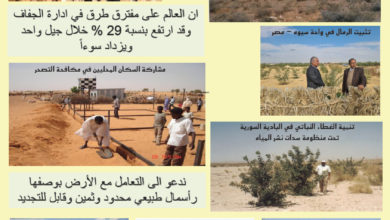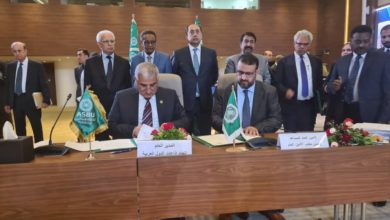The reality of camels and the prospects for their development in the Arab countries conclusion and recommendations

Under the patronage and presence of the director of the Arab Center for the Studies of Arid zones and Dry lands, his Excellency Dr. Naser Aldin Al-Obaid, the workshop ” the reality of camels and prospects for its development in the Arab countries” was concluded at the organization’s headquarters, which lasted for two days, with the participation of more than 57 researchers and experts from 16 Arab countries, and a lecturer in it. A group of experts from the Arab Center / ACSAD, in addition to the scientific papers submitted by representatives of the Ministers of Agricultural and Livestock in the Arab countries, which amounted to 13 scientific papers.
Dr. Al-Obaid stressed the importance of this workshop through lectures and work papers submitted by the experts of the councils and the Arab countries, especially historical discussions, where scientific and technical information was provided to be a motive for the development and improvement of the camel sector that did not care and adequate care other agricultural animals that have achieved significant numbers in milk and meat production, which respond to the objectives of the workshop in the description of the current situation by focusing on obstacles and difficulties suffering from the sector.
Dr. Al-Obaid explained that the research and studies conducted within the camel research and development program in the Arab countries by ACSAD showed important results that must be transferred to camel breeders to improve their production and income, and the best way is to train cadres working in this field to be the link between researchers and breeders.
He said that this workshop comes to see the reality of camel breeding in the Arab countries, and the most important obstacles facing this important sector of livestock, and to present proposals that contribute to improving this sector.
He also stressed that one of the most important objectives of the workshop within the framework of the partnership between ACSAD and the relevant ministries in the Arab countries is to develop strategies and plans to develop the sector through programs and development research projects, exchange experiences , and training courses to raise capabilities in various fields of the camel sector, the animal of the past, present and future, to confront climate changes and improve the lives of the population in the Arab world.Dry zones and arid lands and called on the various stakeholders to combine all efforts to finance and develop the camel sector within the framework of production systems to ensure sustainability.
The recommendations emanating from this workshop included:
1- The Arab center adopted the establishment of an accurate database for camels to inventory their numbers in the Arab world.
2- Promote the progressive transition to intensify the breeding of camels within their own pastoral complexes in its grazing areas and facilities service delivery and discharge their products.
3- Rehabilitation of degraded natural pastures in the Arab countries, cultivation of drought and salinity tolerant plants, and permanent provision of drinking water for camels.
4- Applying modern technologies in camel breeding and care ( artificial insemination and embryo transfer, mechanical milking, and artificial nurturing of camel births).
5- Raising the capabilities of technical cadres and breeders, especially young people, and supporting them to work in the camel sector in various fields of breeding, care, nutrition and health of camels and the manufacture of their products.
6- Establishing networks or associations for breeders in order to facilitate the transfer of service, the marketing of their products and the exchange of genetic material among them.
7- Establishing an Arabic website under the supervision of the Arab Center ACSAD to provide all publications and research on camels.
8- Attention to monitoring and treating diseases that affect camels and their offspring, and manufacturing the necessary vaccines for them.
9- Encouraging the holding of periodic and international exhibitions and festivals for camels (camel grooming, camel races).
The heads of the participating Arab teams expressed their great benefit and their deep thanks to ACSAD management and researchers for their exceptional efforts in favor of developing agriculture and sustainable development in the Arab countries.
It is worth mentioning that the Arab countries participating in this workshop are (Sultanate of Oman, United Arab Emirates, Palestine, Tunisia, Sudan, Bahrain, Syria, Somalia, Egypt, Algeria, Iraq, Lebanon, Kuwait, Saudi Arabia, Yemen, Libya), and a number of Arab and international organizations, and research centers.



